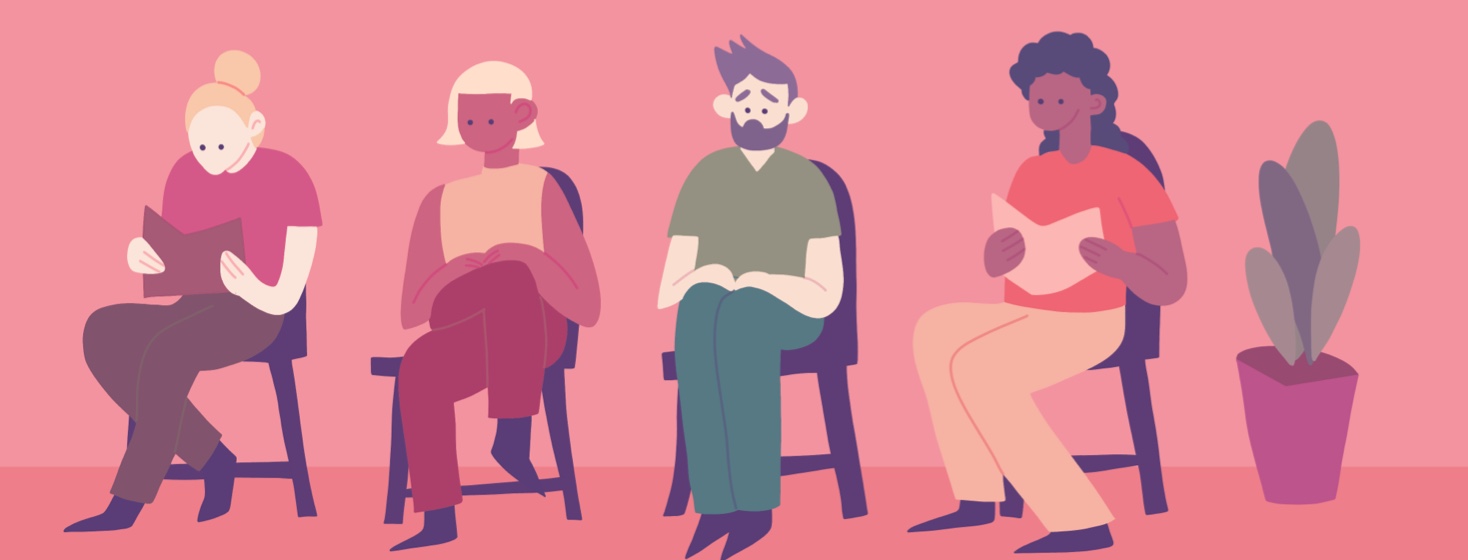Navigating "Pinktober" as a Male Breast Cancer Patient
October, Breast Cancer Awareness Month, or BCAM, is often referred to as "Pinktober."1
For men with the disease, it's a particularly awkward month. Nearly 10 years on from diagnosis of breast cancer, I have to say there's not much new happening when it comes to raising awareness that this disease is genderless.
Stories from men with breast cancer
As an editor of dozens of survivor stories written by men, I've learned that guys with breast cancer are reluctant to identify themselves as survivors of what is essentially considered a "women's disease."
From reading these stories, I've gathered there are many reasons very few men come out in public as advocates. Or even ask questions and relate their experiences through diagnosis and treatment.
Featured Forum
View all responsesThe stigma for men is real
Of course, it's understandable there would be stigma attached to a man diagnosed with breast cancer.2
So pink and feminine is the imagery, and so female-centered is the discussion about the disease that men are caught unaware. They are, therefore, blindsided by coming up with a probable diagnosis of a lump behind their nipple.
Months to get a proper diagnosis
Both men and the medical field will often dismiss breast cancer as a potential option. This happened in my case. It took 3 months for me to get correctly diagnosed.
Meanwhile, the stage had increased from stage 1 to stage 3B. I should add that, post-diagnosis, the treatment I received was first-class, and I am now approaching 10 years with no evidence of the disease.
Addressing a sea of pink shirts
In 2014, not long after I was diagnosed with breast cancer, the committee of my small town's pink fun run invited me to address the crowd about what it was like for a man to get this disease.
There I was, in a blue shirt and the sea of pink before me. I wanted people there to know that, while rare, men get breast cancer too.
Years later, I attended a large Pinktober event in my state's capital city, Brisbane, and was astounded at the lack of mention of men. I was asked to say some words over the PA system to get my message across.
Where is a small patch of blue?
But herein lies the rub: could the dominant trope of pink be turning off men from presenting to their primary physician and, therefore, reaching a later diagnosis and a poorer prognosis?
And, is not the whole pink avalanche giving men embarrassment upon learning they have breast cancer? Why else would so few men come out after receiving a diagnosis? I've suggested several pink charities introduce a small patch of blue in their campaigns to signify men—no luck to date.
Improving breast cancer research in men
And what about research? Given that only around 1 percent of new cases are males, spending this percentage of the public and government funds donated and allocated to male breast cancer research would appear fair.3
In fact, even more than 1 percent, because our survival rates remain lower than for women. That means men are proportionately more likely to move to the advanced breast cancer stage.3
Recruiting men for clinical trials
Also, since there is a lack of male-specific clinical research and even basic collation and analysis of treatment metadata, the treatment for males is based on what has proven effective for women.
While it's great that research on women translates into mostly successful treatments, it's fair to say that more studies targeting the male patient cohort might yield new data for more effective treatments.
Certainly, men would feel better if they were recruited as subjects. I've come to understand that while BCAM raises mega-bucks for research, it masks the fact that this is a genderless disease.
Many breast cancer awareness campaigns are incomplete
And because many pink charities spend well over half the funds they raise on marketing and salaries, many public donations are missing the mark.
So, next time you participate in a "Pinktober" event, ask the charity about its policy on minority genders. Make it clear that, without this, their awareness campaigns are incomplete.

Join the conversation